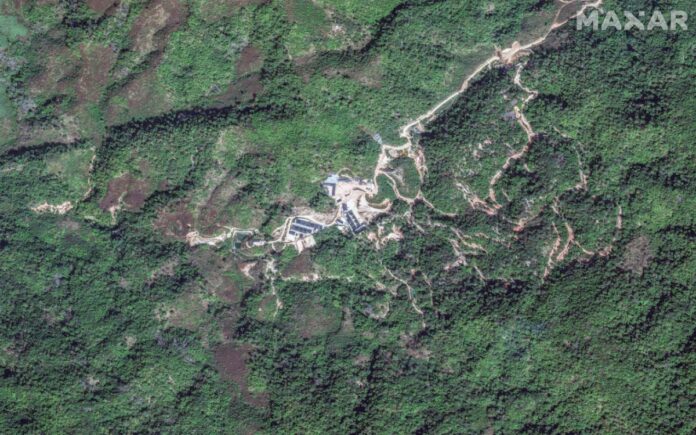Bangkok: A Chinese-aligned militia is now overseeing operations at newly opened rare earth mines in eastern Myanmar, four sources confirmed, marking a fresh strategic move by Beijing to tighten its grip over critical minerals vital to global high-tech industries. The move comes amid China’s broader efforts to safeguard its dominance in rare earth supply chains as trade tensions with the United States intensify.
China already maintains a near-monopoly on the processing of heavy rare earth elements (REEs) used in advanced technologies such as wind turbines, electric vehicles, and medical equipment. But the country depends heavily on imports of raw rare earth minerals—particularly from Myanmar. According to Chinese customs data, nearly half of China’s rare earth oxide imports in the first four months of 2025 originated from Myanmar.
That flow was recently disrupted after rebel forces seized control of major mining zones in Myanmar’s Kachin region, traditionally a key supplier of critical minerals like dysprosium and terbium. In response, Chinese miners, under the protection of the United Wa State Army (UWSA), have begun extracting rare earths in new deposits located in the hills of Shan State, according to two sources currently working at one of the mines.
These operations are reportedly being carried out at scale. At least 100 workers are on rotating shifts excavating hills and leaching rare earths using chemical extraction methods. Trucks have been seen transporting mined materials from areas between Mong Hsat and Mong Yun toward the Chinese border, some 200 km away.
International news agency Reuters has corroborated these developments using satellite images provided by commercial space tech firms, Planet Labs and Maxar Technologies. The images show multiple newly cleared forest zones with distinct leaching pools—standard infrastructure for rare earth extraction.
Though Myanmar’s business records are notoriously opaque, sources confirm that the sites are guarded by UWSA personnel, a powerful ethnic armed group with deep historical, commercial, and military ties to China. The UWSA also controls one of the world’s largest tin mining operations.
“The UWSA functions as a key instrument for China to maintain strategic leverage along the Myanmar-China border and exert influence over other ethnic armed groups,” said Ye Myo Hein, senior fellow at the Southeast Asia Peace Institute.
Satellite imagery shows the emergence of significant infrastructure: A circular clearing near the Thai border appeared in April 2023, and by February 2025—shortly after Kachin operations ceased—it featured over a dozen leaching pools. Another nearby site developed rapidly from May 2024, evolving into a mining hub with 20 pools by early 2025.
“The Shan State deposits will have terbium and dysprosium in them, and they will be the main elements that (the miners) are targeting there,” said David Merriman, Research Director at Project Blue, who analyzed the satellite imagery.
At least one of the Shan mines is reportedly run by a Chinese firm with Chinese-speaking management. Offices on-site bear Chinese signage, while extraction methods resemble those used in Kachin—a region heavily impacted by uncontrolled mining and environmental degradation.
“Chinese firms can extract heavy rare earths in Myanmar at a fraction of the cost due to low regulation,” said Neha Mukherjee of Benchmark Mineral Intelligence. “Margins are huge.”
China’s Ministry of Commerce, the UWSA, and the Myanmar junta all declined to respond to inquiries about the operations.
Also Read | Taiwan Cyber Unit Defies China’s Arrest Bounty, Rejects Beijing’s Jurisdiction
Despite Washington’s calls for rare earth supply chain diversification, Beijing appears to be doubling down on securing regional sources to maintain strategic dominance. With the Kachin belt destabilized, Shan State—currently more insulated from civil conflict—has emerged as a stable alternative.
“The Wa have had now 35 years with no real conflict with the Myanmar military,” said Jason Towers, Myanmar country director at the U.S. Institute of Peace. “Chinese companies and the Chinese government would see the Wa areas as being more stable than other parts of northern Burma.”
Also Read | Yunus Accuses Modi of Ignoring Plea to Silence Hasina’s Political Statements from India
The use of heavy rare earths as a diplomatic and economic tool is becoming increasingly clear. China’s tighter control over critical mineral flows—amid fluctuating prices and export curbs—has placed global manufacturers on edge.
“They want to keep the control of heavy rare earths in their hands,” Mukherjee added. “They use that as a strategic tool.”



